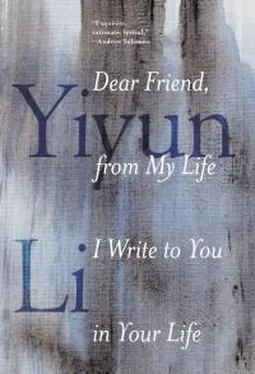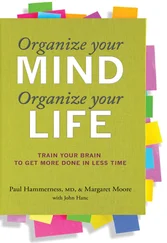TO PLACE TWO writers together because of similar details in their biographies reveals one’s motivations and limitations.
Turgenev is mentioned a single time in Marianne Moore’s letters. When she was eighteen, during a visit to New York City (a trip she called her “sojourn in the whale,” her first contact with working artists and poets out in the world), she noticed his work next to Molière’s in a bookcase at an artist’s house. There is no reason to believe Turgenev’s work mattered to Moore. One could imagine her disapproval of his indiscreet obsession with a married woman. One could imagine, too, his frustration with someone so impregnably upright. He would not have quarreled with her well, as he did with Tolstoy or Dostoyevsky.
I began to read Moore’s letters after I saw, by chance, an often quoted line from her poem “Silence”: “The deepest feeling always shows itself in silence; / not in silence, but restraint.” I must have written something similar in Chinese in another life; in fact, I knew I had, and had lived as a subscriber to that belief. One makes oneself a rebel and a castaway simultaneously when renouncing a belief.
I was reading the letters and journals of several writers, and it did not matter to add another dead person. Their banalities, more than the brilliant thoughts and words, soothed me. Even the dullest entry or the most mundane correspondence pointed to an end. I have given up on many novels that bore me but I have never given up following a writer’s journey in letters or journal midway.
Yet I did not find consolation in my own banalities. The days, slow because I was not writing, were measured by minutes, recorded in a journal because I wanted to understand how to exert oneself. An hour of weeping could be reduced to half an hour, to fifteen minutes; an undistracted reading of ten minutes could double or triple. Writing fiction is about understanding how time passes, years ago I had said to a friend. What I had not realized was that time could also stand still. Ten years passed in a few sentences for Maupassant’s heroine. Yet to stay clear of any destructive impulse by keeping a deranged pen moving in the journal, I would often find, twenty pages later, that five minutes barely passed on the clock.
In a letter to a disheartened friend, Moore wrote:
Whatever the problem, we must elude the sense of being trapped—even if all one can say to one’s self is, “if not now, later.”…If nothing charms or sustains us (and we are getting food and fresh air) it is for us to say, “If not now, later” and not mope. I never fully succeed and am beginning to think I never shall; still, the automatic sense of participation, brings one along.
The automatic participation of life: I held on to that idea as a fake talisman. I did not believe that later would be any different from now, but I liked the sound of her phrase.
—
LIKE TURGENEV, MOORE never married. He considered marriage a catastrophe for art. Her poem “Marriage” opens by calling marriage “an institution” and “enterprise,” but even earlier she had written, at twenty-four, in a letter to H.D.: “(There is no such thing as a prudent marriage;) marriage is a Crusade; there is always tragedy in it.”
The parallel between the biographies of Moore and Turgenev is easily noticeable. Mary Warner, Moore’s mother, separated from her husband shortly after Moore’s birth, and he spent much of the rest of his life in a sanatorium for delusional monomania. Mary raised Moore and her older brother, Warner, by herself. Like Turgenev’s brother, Warner married against their mother’s wish. Unlike Varvara Petrovna and her infernal rage, Mary displayed enough magnanimity, though she was barely tolerant of her daughter-in-law. “My crime is that while I would count it nothing to die for you, I have refused to live for you,” Warner wrote to his mother shortly after his marriage. Often I come back to that fortissimo line. Not everyone born to a tyrannical mother has the mental clarity and strength to articulate this decision.
I often contemplated Moore’s words for days without fully grasping their meaning or why they felt so important. “Wilfulness in itself, is an attractive quality but wilfulness fails to take into account the question of attrition and attrition is inevitable,” she wrote in a letter, which I sent to a friend. What did she mean? I asked.
Why do you read her in any case? the friend asked.
One reads and rereads writers with whom one feels kinship—Turgenev, for instance—or else those who, like D. H. Lawrence and Stefan Zweig and Romain Rolland, enter one’s life at a particular moment and become part of personal history. Reading Moore, however, required a willfulness that matched hers. Not understanding, I could intrude only by continuing to read—a rebellion.
When I was ten, I set my heart on memorizing the great poets with the surname Li. There was the romantic craze for Li Po; the melancholy crooning of Li Yu, an emperor turned prisoner; Li Qingzhao, one of the few poetesses recorded in Chinese history who was not also a courtesan; Li Ye, a Taoist nun known for her amorous connections with several poets. And then there were two Tang dynasty poets I did not understand at all: Li Shangyin and Li He, both known for their allusiveness. What attracted me to their work, I now realize, was their unreadableness. Li Shangyin was meticulous with form, his meter and rhyme impeccable, his words painstakingly arranged, with splendid images and dense metaphors strung into indecipherable jewels; Li He was less constrained by form, but his poetry was equally obscure. It was a child’s avenging joy to be able to quote—often only to myself—from the two poets whom even most adults around did not understand.
More experienced and less undaunted a reader, I wondered while reading Moore whether one has the right to claim a connection without understanding. Moore’s letters are as perplexing as her poetry. Reading her is like trudging through a frozen snowfield in the dark. Even though her words seem to have been written out of the wish to communicate, together they take on a frustrating opaqueness. How can a person, writing in a genuine attempt to convey things that are important, make herself so unknowable? Moore’s biographer—I did not read her book until after I finished the letters—mentions a similar frustration.
A writer’s letters often exhibit a transparency, a naturalness even the most autobiographical work could not match. In a letter to Flaubert, who so rarely left his homestead, Turgenev wrote:
Old age, my dear friend, is a great dull cloud that envelops the future, the present and even the past, which it makes more melancholy, covering our memories with fine cracks, like old porcelain. (I’m afraid I’m expressing myself badly, but never mind.) We must defend ourselves against this cloud! I think you don’t do so enough. In fact I think a journey to Russia, the two of us together, would do you good.
Following the exhortation, Turgenev wrote about a four-day trip he had recently taken in Russia. The countryside in that letter was not much different from what was described in Rudin or Fathers and Sons, the observer’s feelings having been felt by his characters. (“One comes out of it as if having been immersed in some sort of restorative bath. And then one gets on with everyday living again.”) Still, to view it through Turgenev’s eyes instead of his characters’ eyes, to read him re-creating the scenery for the mind’s eye of Flaubert, brings a strange satisfaction, not merely from eavesdropping. There is one more frame of seeing, the discrepancy between words written for anonymous others and words written for personal connections.
In his letters, Turgenev, forgoing his detached gaze at his characters, was prone to exaggeration and drama. Katherine Mansfield’s cool, at times cruel, command in her short stories is a sharp contrast to the unrestrained wildness in her letters. Hemingway, exact in each word and its weight in his fiction, could be garrulous in his correspondence. (Once, entertained and annoyed by his repetitiveness on a small monetary matter, I wrote in the margin: be Hemingway already! ) The contrast between writers’ published work and private words makes one feel for them, but Moore’s poetry and letters, equally opaque, close a door to anyone’s curiosity. Perhaps my reading her is far from rebellion or intrusion. It is only to insist on being defeated. No one defeats better than Moore.
Читать дальше












